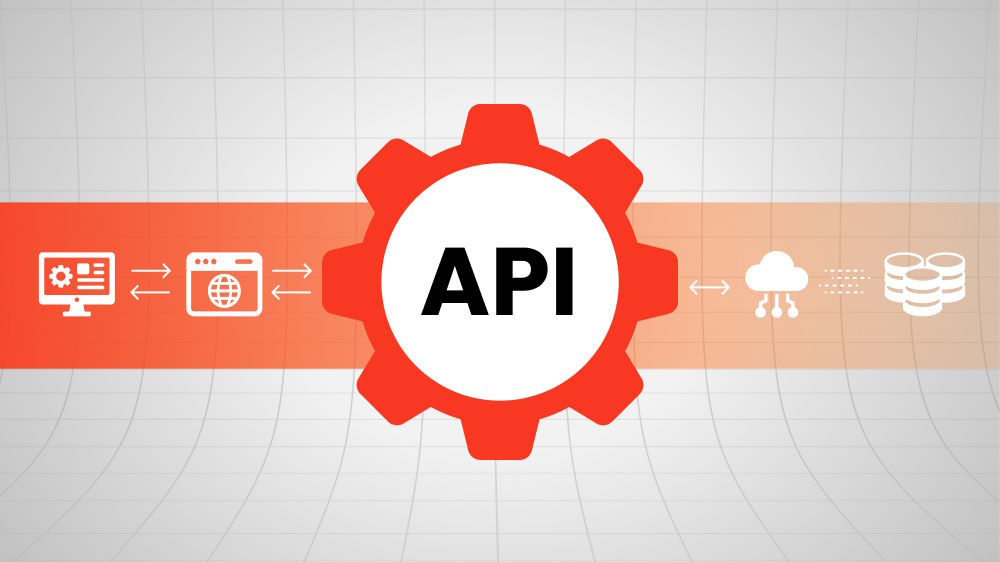The Benefits of a Code of Ethics in Building Trust and Delivering Excellence for Outsourcing

Content Map
More chaptersTrust forms the cornerstone of any fruitful outsourcing relationship. It fosters collaboration, open communication, and mutual understanding, enabling both parties to work harmoniously towards shared goals. Additionally, excellence in service delivery is a non-negotiable attribute that ensures customer satisfaction and long-term success. But how can businesses truly cultivate trust and deliver excellence in their outsourcing endeavors?
This is where a code of ethics in outsourcing comes into play. A code of ethics serves as a guiding compass, outlining the moral and professional principles that govern the ethical behavior and actions of all involved parties. By adhering to a set of ethical standards, businesses can navigate the complexities of outsourcing with integrity, transparency, and fairness.
In this article, we will explore how a code of ethics in outsourcing can promote ethical behavior and ethical conduct while upholding company values. We will delve into the tangible benefits that arise from implementing ethical practices and discuss real-world examples that demonstrate the transformative power of a code of ethics in outsourcing partnerships, particularly within public companies.
What Does a Code of Ethics Mean?

A code of ethics is a set of principles or guidelines that outline the expected behavior and ethical manner for individuals, human resources, or organizations in a particular profession, industry, or context. It serves as a moral compass, providing a framework for ethical decision-making and guiding actions in line with shared values and standards.
A code of ethics typically includes a range of principles and rules that govern various aspects of conduct, such as integrity, honesty, respect, fairness, confidentiality, and professionalism. It is designed to promote ethical behavior, maintain the company’s values, protect stakeholders’ interests, and uphold the reputation and credibility of the profession or industry.
The specific content and scope of a code of ethics can vary depending on the field or organization in which it is applied. It may address interactions with clients, colleagues, and the public, as well as issues related to conflicts of interest, compliance with laws and regulations, social responsibility, and more. The code often provides guidance on how to handle ethical dilemmas and establish a standard of behavior that aligns with the values and expectations of the profession or organization.
In the context of the outsourcing industry, a code of ethics applies to both the outsourcing service providers and their clients. It establishes a set of ethical principles that govern their interactions, ensuring that the outsourcing relationship operates with integrity, transparency, and fairness.
Why Is a Code of Ethics Important, Especially In Outsourcing?
Good ethics matter to the outsourcing industry. It plays a crucial role in fostering trust between service providers and clients. It establishes a common set of values and expectations, ensuring that both parties understand and respect each other’s rights and responsibilities. Adhering to ethical practices helps deliver excellent results in outsourcing and creates a positive and productive environment where open communication, collaboration, and mutual respect thrive.
Building Trust through a Code of Ethics
Trust is the cornerstone of successful outsourcing relationships. When organizations decide to entrust critical functions to external partners, they place their faith in the capabilities, integrity, and reliability of those partners. Establishing and nurturing trust becomes paramount for fostering collaboration, open communication, and achieving shared goals. This is where a code of ethics emerges as a powerful tool in building trust within the outsourcing landscape.
A code of ethics establishes clear expectations and guidelines for behavior, providing a roadmap for ethical decision-making. It outlines the ethical principles that should govern the relationship, such as confidentiality, transparency, and fair treatment.
In practice, a code of ethics plays a crucial role in building trust by aligning the company’s mission statement with the interests of stakeholders involved in outsourcing. It sets a standard for integrity and responsible conduct, ensuring that ethical considerations are at the forefront of decision-making processes. When organizations demonstrate their commitment to ethical practices by adhering to a code of ethics, trust becomes the foundation upon which successful outsourcing partnerships are built.
Delivering Excellence with Ethical Principles
A code of ethics plays a pivotal role in promoting ethical principles and guiding outsourcing relationships toward exceptional outcomes.
Ethical practices lay the foundation for excellence in outsourcing by instilling a sense of integrity and responsibility. A code of ethics encourages high-quality work by emphasizing the importance of professionalism and competence. Ethical service providers strive to deliver services that meet or exceed expectations, leveraging their expertise and resources to provide exceptional value to their clients.
Moreover, the ethics code promotes accountability in outsourcing relationships. Ethical service providers take ownership of their actions and decisions, assuming responsibility for the outcomes of their work. They are transparent about their company culture, capabilities, limitations, and any challenges that may arise during the course of the project. This accountability ensures that issues are promptly addressed in a professional context, corrective actions are taken, and the project stays on track toward achieving excellence.
The Benefits of Code of Ethics in Outsourcing
Implementing a code of ethics in outsourcing brings forth numerous specific benefits that contribute to the success and sustainability of business relationships:
Enhanced Reputation and Credibility
A code of ethics demonstrates a commitment to ethical behavior and responsible practices. By adhering to these principles, organizations build a reputation for trustworthiness, reliability, and professionalism. Clients and stakeholders are more willing to engage with service providers who uphold a strong ethical framework, enhancing the organization’s reputation and credibility in the market.
Surveys and studies consistently show that customers and clients prioritize ethical conduct when choosing outsourcing partners. According to a survey by the Ethisphere Institute, 92% of consumers are more likely to trust a company that demonstrates ethical behavior.
Improved Client Satisfaction and Retention
Clear expectations and rules are established in a code of ethics, which promotes openness and trust in the outsourcing partnership. When clients perceive that their service provider operates with integrity, respects their interests, and plays by the same rules, it leads to increased client satisfaction. Satisfied clients are more likely to continue the partnership and provide positive feedback, leading to long-term business relationships.
Customer satisfaction surveys and testimonials from clients who experienced ethical practices in outsourcing demonstrate higher levels of satisfaction and a greater likelihood of repeat business.
Minimized Risks and Conflicts
A code of ethics acts as a safeguard against potential risks and conflicts in outsourcing relationships. It provides a framework for ethical decision-making and behavior, reducing the likelihood of ethical lapses or breaches. By clearly defining acceptable practices and behaviors, organizational leaders can mitigate risks related to legal and regulatory compliance, data security, and confidentiality.
Case studies and industry reports highlight instances where adherence to a code of ethics prevented data breaches, legal disputes, and reputational damage, thereby minimizing risks and conflicts. The Sarbanes-Oxley Act of 2002, for instance, mandates that public companies implement an ethics code specifically for senior financial officers to build public trust.
Increased Collaboration and Open Communication
Ethical practices foster an environment of collaboration, open communication, and trust in outsourcing relationships. A code of ethics encourages stakeholders to engage in transparent and honest dialogue, enabling effective problem-solving and decision-making. When all parties involved feel safe and respected, they are more inclined to share information, address challenges proactively, and work together to achieve shared goals.
Research studies have shown that organizations that prioritize open communication and collaboration through ethical practices experience higher levels of employee engagement, teamwork, and overall organizational effectiveness.
Long-term partnerships and business growth opportunities
A code of ethics lays the foundation for long-term partnerships and opens doors to business growth opportunities. Ethical service providers are more likely to attract new clients, retain existing ones, and receive positive referrals. By consistently delivering on ethical commitments and building a reputation for integrity, organizations can expand their client base, secure long-term contracts, and explore new business opportunities.
Testimonials from satisfied clients and case studies showcasing long-standing partnerships resulting from ethical practices provide evidence of the long-term benefits of a code of ethics in outsourcing.
How to Implement an Ethical Code for Outsourcing Success?
Implementing an ethical code for outsourcing success involves a systematic approach that ensures the integration of ethical principles and practices into the outsourcing relationship. Here are key steps to follow when implementing an ethical code:
- Define Ethical Standards: Start by identifying the ethical standards and principles that align with your organization’s values and industry norms. Consider factors such as confidentiality, transparency, fair treatment, integrity, accountability, and compliance with laws and regulations. Clearly articulate these standards to create a foundation for ethical behavior in outsourcing.
- Develop a Code of Ethics: Create a comprehensive code of ethics document that outlines the ethical principles, expectations, and guidelines for all parties involved in the outsourcing relationship. The code should be clear, concise, and accessible to everyone, including service providers, clients, and relevant stakeholders. Participate with key parties in the development process to guarantee agreement and coordination.
- Communicate and Train: Effective communication is crucial for the successful implementation of an ethical code. Share the code of ethics with all stakeholders and provide training sessions to ensure everyone understands the principles and knows how to apply them in their work. Emphasize the importance of ethical behavior, the benefits it brings, and the consequences of non-compliance.
- Integrate Ethical Considerations in Contracts: Incorporate ethical clauses into outsourcing contracts to formalize the commitment to ethical practices. Include provisions related to confidentiality, data security, compliance, and dispute resolution mechanisms. Ensure that all parties involved review and agree to these ethical clauses before entering into the outsourcing agreement.
- Foster a Culture of Ethics: Creating a culture of ethics requires ongoing commitment and reinforcement. Encourage ethical behavior by recognizing and rewarding outstanding employees and teams that demonstrate exemplary ethical conduct. Provide channels for reporting ethical concerns or violations anonymously and establish a clear process for investigating and addressing such reports.
Remember, implementing an ethical code requires commitment and active involvement from all parties involved. By fostering a culture of ethics, organizations can create a strong foundation for outsourcing success based on trust, integrity, and mutual respect.
Final Suggestions
Are you searching for a reliable and ethical outsourcing partner? Look no further than Orient Software - a trusted industry leader known for prioritizing ethical practices and maintaining a strong code of ethics.
Choosing Orient Software as your software development outsourcing partner means aligning your business with an organization that values ethics, professionalism, and client satisfaction. Experience the benefits of collaborating with a reputable company that prioritizes ethical practices and delivers exceptional software solutions.
Contact Orient Software today to discuss your software development needs and witness the difference between partnering with an ethical and reliable outsourcing provider. Let us bring your software vision to life while upholding the highest standards of integrity and quality.







